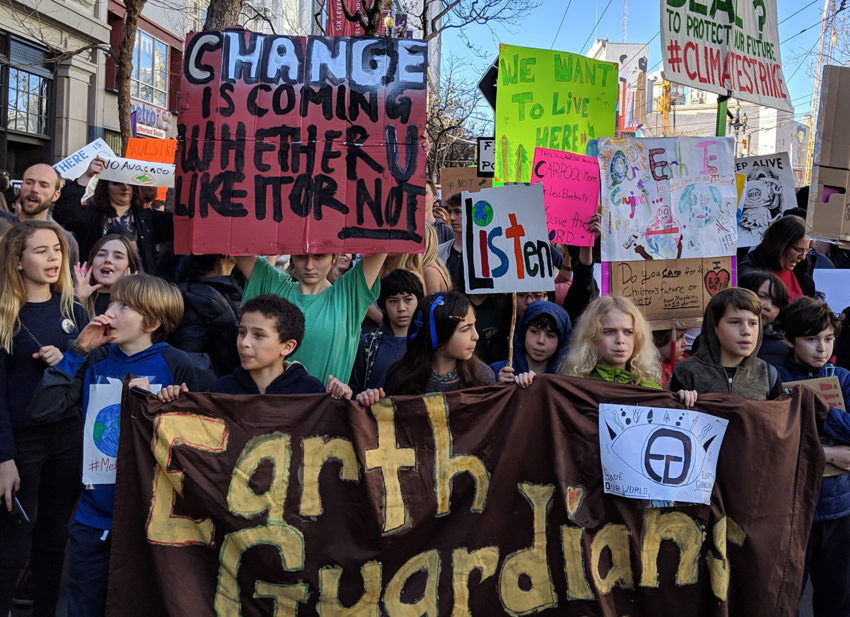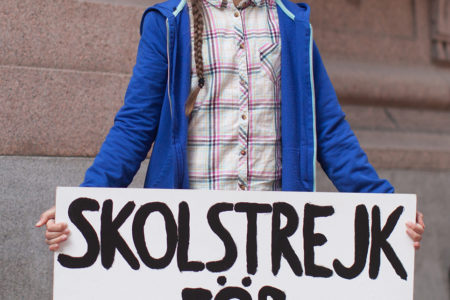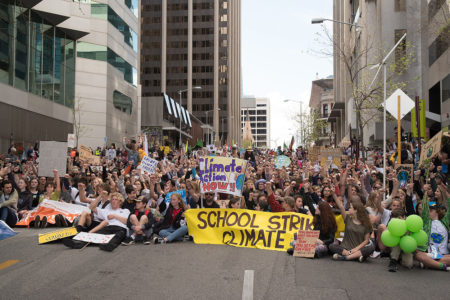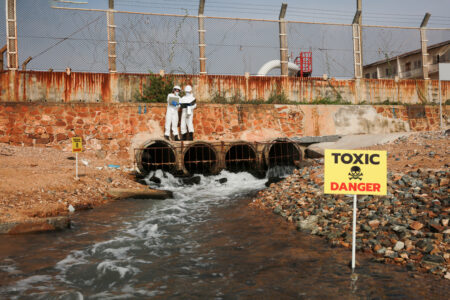
Share On Social!
Last week, people across the world marched through city streets in hopes of prompting world leaders to act on the climate crisis.
Over 7.6 million people participated in this strike from cities in over 185 countries, according to the Global Climate Strike website. These protestors demanded immediate action in the climate crisis from their respective elected officials.
This event was inspired by the words and actions of Swedish 16-year-old, Greta Thunberg, who has made significant influences in the current climate crisis conversation — some say she’s the spark that lit the Climate Strike fire.
“We have gathered today because we have chosen which path we want to take, and now we are waiting for the others to follow our example,” Thunberg said at an earlier climate protest in April. “We are the ones making a difference, we the people in this Extinction Rebellion and the children’s school strike for the climate — we are the ones making a difference. It shouldn’t be like that, but since no one else is doing anything, we will have to do so.”
Requests and Demands for Climate Action
While countries across the globe are discussing how to solve climate-change-related issues, protestors participating in the strike had one message: It’s time to stop talking and start acting.
“I come from Sweden, and back there it’s almost the same problem as here — as everywhere — that nothing is being done to stop an ecological crisis, despite all the beautiful words and promises,” Thunberg said.

“We are now facing an existential crisis, the climate crisis, and ecological crisis, which have never been treated as crises before. They have been ignored for decades, and for way too long, the politicians and the people in power have gotten away with not doing anything at all to fight the climate crisis and the ecological crisis. We will make sure that politicians will not get away with it for any longer.”
The protest, which saw a lot of organization and support coming from the world’s youth, demanded world leaders address a few critical areas of concern, including:
- Drastically reduce the global reliance on fossil fuels
- Quickly move to reliance to clean energy
- Stop mass-deforestation
- Do more to protect oceans
- Develop and implement sustainable agriculture practices
The Climate Strike’s organizers and protestors demonstrated notable levels of passion and anger leading up to and during the event. They say that frustration stems from worries about what the planet’s future will look like if no environmental action is taken.
Impacts and Consequences of Climate Change
Given current and historical emissions levels, Americans, specifically, are looking down the barrel of a hot, uncomfortable future.
Last Friday over 4 million people striked for the climate.
This Friday we do it again!
170 countries and 6383 events so far in #weekforfuture
Find or register your strike at https://t.co/G06WbXNvl1 or local websites.
Spread the word!#FridaysForFuture #ClimateStrike pic.twitter.com/VXCnPQzw6a— Greta Thunberg (@GretaThunberg) September 25, 2019
That future will only get worse if elected officials do not take quick and dedicated steps to solve this problem, according to the experts.
Cities across the U.S. will experience harsher extreme-weather events, see increases in daily temperatures, and some might no longer be inhabitable.
Worse, this crisis will have significantly worse repercussions on underserved groups, including Latinos. These populations will not only have a harder time dealing with future consequences, but they are already enduring its current impacts.
“We are all experiencing the health impacts of climate change. It’s real, it’s happening now, and it’s affecting our health today,” said Natasha DeJarnett, a research coordinator at the National Environmental Health Association, told The Washington Post.
“For black and brown communities, climate change acts as a threat multiplier, increasing the risk of adverse health outcomes.”
Steps to Continue the Climate Strike, Conversation
Students, youth, and other individuals who are concerned about the climate crisis plan to take to the streets every Friday until action is taken.
“Last Friday over 4 million people striked for the climate. This Friday we do it again. 170 countries and 6383 events so far in #weekforfuture,” Thunberg tweeted last Tuesday.
Do you need help talking about climate impact on patients or leaders?
Try this guide, Let’s Talk Health and Climate: Communication Guidance for Health Professionals, from Climate for Health and ecoAmerica.
“The health and medical community is uniquely positioned to advance the message that climate solutions are a health priority,” according to the guide. “[The guide] can help make health professionals as adept at talking about climate change as they are at addressing America’s health challenges.”
Editor’s Note: This article is part of a collaboration between Salud America! and the Hoffman Toxicant-Induced Loss of Tolerance (TILT) program at UT Health- San Antonio. To find out if you are TILTed due to exposure to everyday foods, chemicals, or drugs, take a self-assessment or learn more about TILT.
By The Numbers
1
Quick Survey
Can help you find out how chemically sensitive you are



